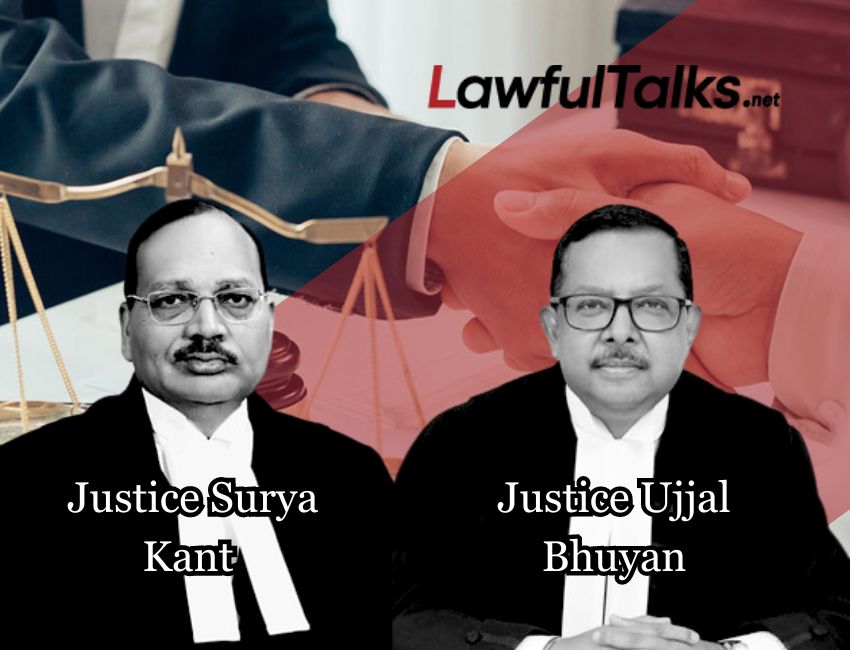Allahabad HC Sets Aside Afzal Ansari's Conviction, Allows Him to Continue as MP


The case of Rohan Rajesh Kothari vs. The State of Gujarat heard by the Supreme Court Bench comprising Justice Surya Kant and Justice Ujjal Bhuyan, exemplifies how Indian law supersedes foreign laws, particularly when the latter contravenes established domestic legal principles. This case highlights the Indian judiciary's commitment to upholding national laws and protecting the rights and welfare of children, even in the face of conflicting foreign rulings.
The case arose from a petition for Special Leave to Appeal (Crl.) No.1722/2024, filed by Rohan Rajesh Kothari. The petitioner sought temporary custody of his children through a Writ of Habeas Corpus, claiming that a foreign judgment obtained from the District Court, Fourth Judicial District, Family Court Division, State of Minnesota, U.S.A., should be recognized and enforced in India. The judgment in question had granted custody to the petitioner, but the Indian legal framework necessitated a thorough examination of its validity within the context of Indian law.
During the proceedings, the petitioner’s counsel argued that the children were currently in the custody of their mother and that the petitioner had a legitimate right to seek their temporary custody. They contended that the foreign judgment from Minnesota should be recognized by Indian courts, emphasizing the importance of international cooperation in custody matters. The petitioner’s advocate asserted that the welfare of the children was paramount and that the Indian courts should respect the foreign ruling.
In contrast, the respondents' counsel raised critical objections to the petitioner's claims. They argued that Kothari had not approached the courts with "clean hands", suggesting that there were underlying issues that compromised his credibility. The respondents highlighted that the children were living with their mother, and any attempt to disrupt this arrangement through a Writ of Habeas Corpus was inappropriate, particularly given that both children were girls. They further argued that Indian courts are not bound by foreign judgments that violate Indian law, referencing Section 13(f) of the Civil Procedure Code, 1908, which states that such judgments are not conclusive between the parties.
After hearing the arguments and reviewing the evidence presented, the bench delivered its judgment on August 5, 2024. The court dismissed the Special Leave Petition, affirming that the petitioner had not approached the courts with clean hands. The judges emphasized that the attempt to secure temporary custody through a Writ of Habeas Corpus was neither entertainable nor justifiable.
The court also clarified that the interim arrangement made by the Supreme Court would continue to operate as a temporary measure until the custody issue was resolved by a competent court in India. Importantly, the court directed that no attempts should be made by Indian authorities or courts to alter the status of the children or their mother, who were residing in India, in compliance with the foreign order claimed by the petitioner.
Advocate for Petitioner: Mr. Amar Dave, Senior Advocate, and Mr. P. S. Sudheer, Advocate on Record
Advocate for the Respondents: Ms. Deepanwita Priyanka, Ms. Swati Ghildiyal (AOR), Ms. Devyani Bhatt, and Mr. Rishi Yadav.
Case Details: Rohan Rajesh Kothari vs. The State of Gujarat, Special Leave to Appeal (Crl.) No(s).1722/2024
(For more updates, tap to join our Whatsapp Channel. and our LinkedIn Page)
Asmi Desai
Advocate, High Court
Latest Posts
Categories
- International News 19 Posts
- Supreme Court 390 Posts
- High Courts 383 Posts



















































































































































































































































































































































































































































































































































































































































































































































































































